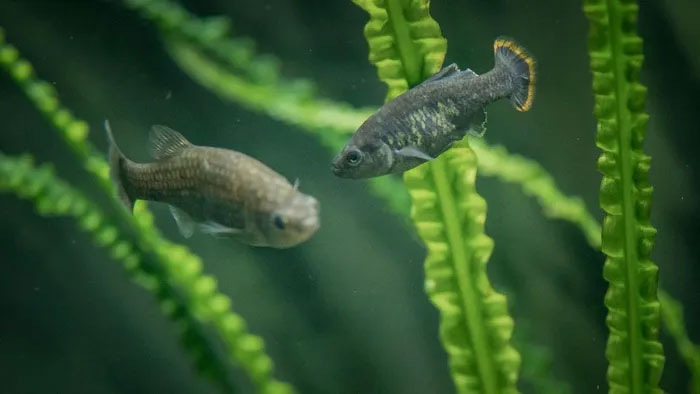Tequila Fish, scientifically known as Zoogoneticus tequila, is a species endemic to Jalisco, a state in western Mexico, which is also the home of the world-famous tequila. In 2003, this fish species was considered extinct in the wild; however, the efforts of scientists and local communities have helped bring this animal back to its natural environment.

Scientists have helped reintroduce the tequila fish to its natural habitat. (Photo: AP)
According to a reporter in Mexico, reintroducing extinct species back into their natural habitats is a complex, costly, and time-consuming process. Recently, Chester Zoo in England announced its success in efforts to recreate the tequila fish population. The zoo’s announcement stated that the International Union for Conservation of Nature (IUCN) recognized this project as a model study for successful reintroduction. For their part, scientists from the University of San Nicolás de Hidalgo (UMSNH) in Michoacán and Chester Zoo, who directly participated in this “rescue mission,” stated that this is the first effort in Latin America aimed at reviving a population of a critically endangered fish species.
The story began over two decades ago in Teuchitlán, a small village near the Tequila volcano in Jalisco. A group of students, including Omar Domínguez, became concerned about the risk of the tequila fish disappearing from the Teuchitlán River, where only this small fish species resided due to pollution, human activities, and invasive species. In 1998, a team of conservationists from Chester Zoo traveled to Mexico to help establish a laboratory for conserving native fish species, bringing with them several dozen pairs of tequila fish that survived in artificial environments thanks to collectors.
Since 2014, UMSNH scientists have worked to breed the original 40 pairs of fish into up to 10,000 individuals. By 2017, they began experimenting with reintroducing tequila fish back into the Teuchitlán River, accepting the significant risk that the farmed fish might not survive in the wild. After many trials, along with support from Chester Zoo and several international organizations, scientists developed a method to simulate the natural habitat of tequila fish, allowing individuals raised in artificial tanks to acclimatize to real-world conditions before being released into the river. Just six months later, 55% of the tequila fish released were thriving in the wild, and by the end of 2021, the fish had naturally expanded into another area of the river.
According to Mr. Domínguez, a researcher at UMSNH, the living conditions in the Teuchitlán River have improved since the project began, evidenced by clearer river water, a reduction in invasive species, and livestock no longer accessing certain areas of the river. This is a result of the tireless efforts of scientists to raise public awareness about the biological value and health benefits of tequila fish, which act as natural predators of disease-carrying mosquitoes.
Currently, the tequila fish is listed by the IUCN as a critically endangered species. According to a 2020 report by the IUCN and the ABQ BioPark in the United States, more than one-third of the 536 freshwater fish species in Mexico are at risk of extinction.


















































